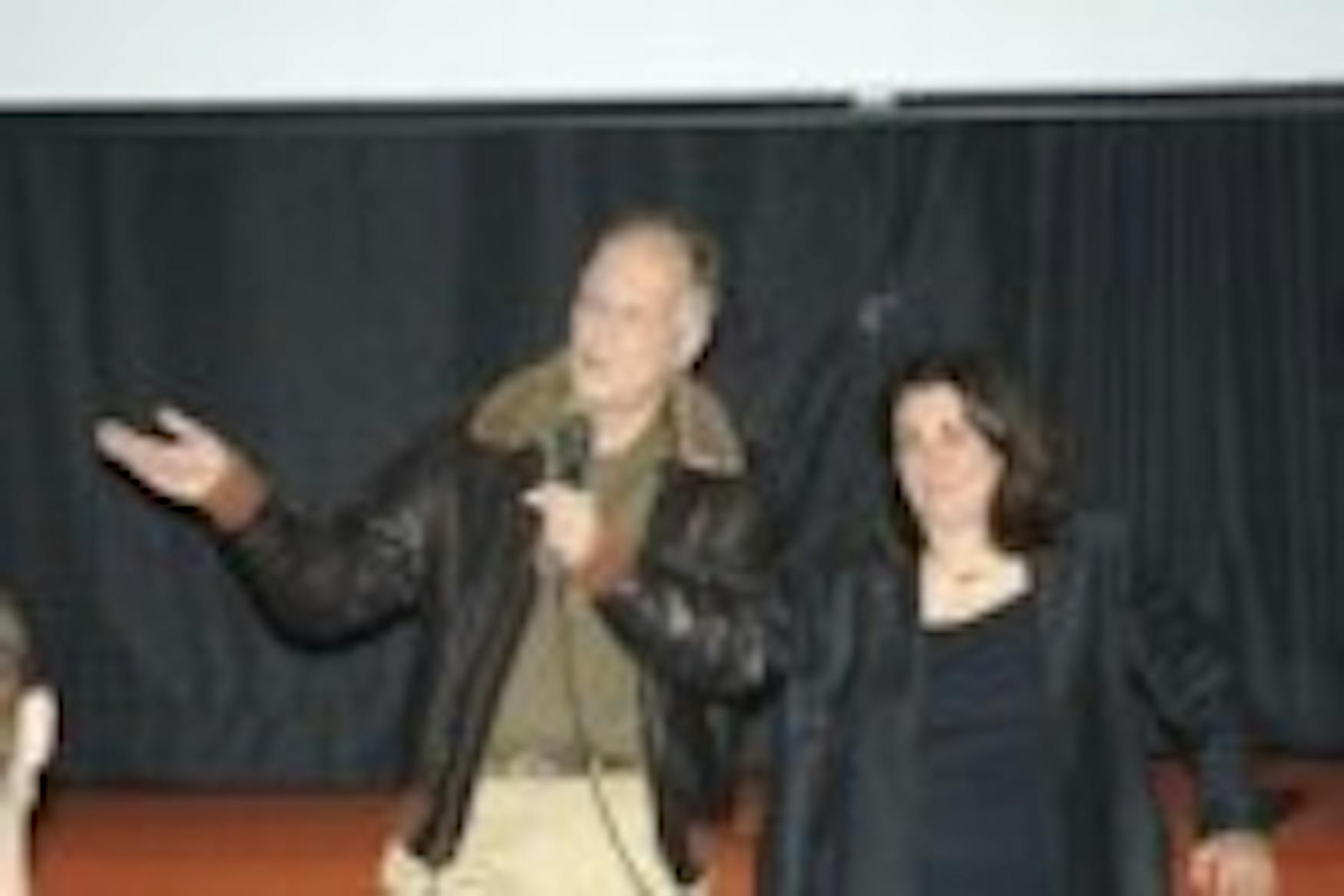Cineasts speak at Shapiro Campus Center (Pt. 1)
Warner Herzog's latest film explores Antarctica
When director Werner Herzog screened his new documentary, Encounters at the End of the World, at the Wasserman Cinematheque last Monday, he took the audience to a continent void of language yet populated by linguists, a place where Ph.D.s work as dishwashers and a former banker drives the world's largest land vehicle, called Ivan the Terra Bus-He took us to Antarctica.This film-a Discovery Channel project that will have a limited theater release before going directly to DVD-wonderfully combines beautiful imagery, humor and pessimism to leave the viewer out of breath from laughter, an influx of knowledge and an odd tinge of despair. In it, Herzog travels to Antarctica not, in his words, "to make a movie about cute fluffy penguins," but to explore the world and its many questions.
The movie begins underwater. An enormous sheet of ice hangs overhead, and a diver silently moves with the slow deliberation of an astronaut. This image, almost extraterrestrial, begins a long string of parallels to being in another world. Herzog travels to the barren moonlike research town of McMurdo, where scientists watch sci-fi films about world destruction and real sea creatures look like something out of The Langoliers.
Herzog makes it clear, however, that this movie and all its implications apply very much to our own world: Global warming threatens to send icebergs the size of U.S. states to careen into other continents. In his foreboding German accent, Herzog warns that scientists believe we are the next great species to become extinct-that our demise is inevitable.
Unlike An Inconvenient Truth, however, Herzog does not simply bombard the viewer with scientific proof for eventual global termination; this is not just another global warming movie. Instead of a movie about facts, Herzog says he aimed to make a movie about truth. When he talked after the screening, he spoke exactly about this point.
"Something filled with millions of facts does not necessarily speak to a higher truth," he said. "The New York phone directory is filled with facts, but it doesn't speak to a deeper truth."
Herzog spoke of trying to achieve an "ecstatic truth," to which one audience member, Oscar-winning filmmaker and friend of Herzog, Errol Morris said, "With all due respect, Werner, but I think what you are trying to achieve, instead of ecstatic truth, is ecstatic absurdity."
There clearly is something in Morris' statement. Part of what makes the movie so good is Herzog's ability to find the ridiculous. He travels through deep, icy tunnels to point out that mankind has put a frozen sturgeon at the exact center of the continental Antarctic for no apparent reason. When the documentary crew, as part of wilderness training, put buckets on their heads to simulate whiteout conditions, they end up walking around aimlessly. This is only made funnier by the cartoon faces drawn on the buckets, making the crew look like a parade of emoticons and robots.
To delve deeper into the absurd, Herzog uses his innate interviewing abilities. He is the king of the afterthought, leaving the camera rolling well after he finishes interviewing to catch his subjects at their most vulnerable. He asks the perfect questions, pestering an introverted penguin expert about penguin prostitution, homosexuality and dementia. And he knows when to let his characters speak and when it is more effective to speak for them.
It is where the absurd seems to speak volumes about "ecstatic" truth that this movie is particularly effective. In one scene-contrary to his initial declaration not to make a movie about them-a penguin teaches Herzog's view of mankind. When almost all penguins are marching toward the sea or back to their eggs, one penguin-just a speck in the vast, white landscape-runs toward the mountains that lie hundreds of miles away at the center of the continent. Herzog explains that this penguin will run into the vast interior of Antarctica to its death. This adorable and hilarious animal to Herzog represents human folly, the inability to understand our boundaries. He runs to the mountains even though he will certainly die.
Like Herzog's other movies, Fitzcarraldo and Grizzly Man in particular, Encounters deals with the theme of human limitation. This time, instead of struggling to push a steamboat up a mountain or getting eaten by bears, Herzog implies that the consequences are dire.
When I talked to Herzog after the movie, he seemed to say that we are much like the penguin: unable to accept our limitations. He spoke of man's desire to fix our problems on this earth by eventually traveling out into the solar system.
"Some people, even scientists, think that Star Trek can happen," he said. "People believe that Star Trek can happen. It cannot happen. We are confined to this earth forever.




Please note All comments are eligible for publication in The Justice.